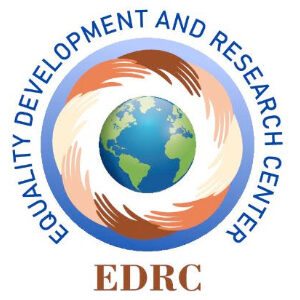Women and Politics
Although the Constitution guarantees the right of women to participate in active politics and over the years, there has been a remarkable increase in women’s participation in politics in Nigeria, yet there is inherently a pronounced level of under-representation of women in politics when compared to their male counterparts. Women’s aspiration to participate in governance is grounded on the fact that women in Nigeria represent half of the population and hence should be allowed a fair share in decision-making and the governance of the country. Secondly that all human beings are equal and women possess the same rights as men to participate in governance and public life. Section 40 of the Constitution of the FRN 1999, provides that any person shall be entitled to assemble and associate with other persons and may be allowed to belong to a political party. Section 42(1) of the same constitution also provides that no citizen would be discriminated against by reason of their sex, religion, etc. From these provisions and other provisions in the Constitution, it is clear that nothing excludes a woman from participation in politics in Nigeria. However, in actual practice, there is extensive discrimination. Following two decades of military rule, statistics reveal that women only secured 3% representation in contested positions in 1999; 4% in 2003; while in 2007 they made it with only 6%. The result of the survey shows that no woman was elected as governor of any state in the federation in those years. According to the figures collated from the database of the Independent National Electoral Commission (INEC), records show that a total 7160 candidates (men and women) contested in the April elections. Of this number, only 628 women participated. Out of the 25 candidates that participated for the office of the President, only 1 is a woman while 5 women contested for the office of the Vice President. In a related development the first and only female Speaker of any House of Assembly in Nigeria, Mrs. Margaret Ichen was frustrated out of office in Benue State. Women have not received much support from the men. A lot of women NGO’s have embarked on campaigns to encourage women’s participation in politics, in reality however, this campaign has not gone beyond the conference halls of hotels and pages of newspapers. These campaigns have not reached the grassroots.
Who We Are
Be a Volunteer Our Community
Known across the country and the world for the amazing work we do. We use share a mix of real-life stories help raise awareness on our focus areas.
